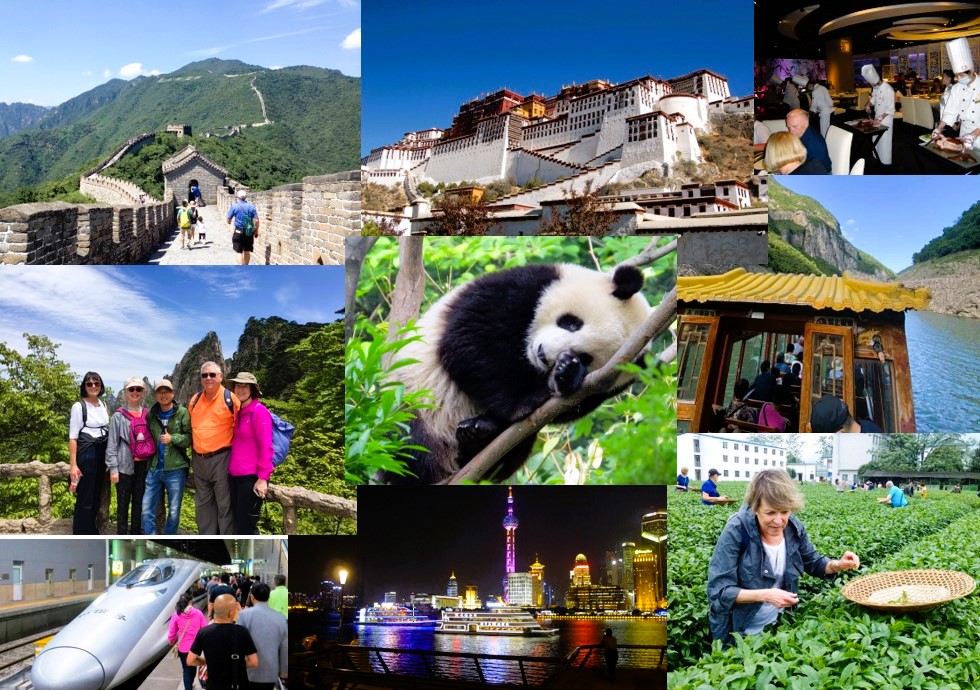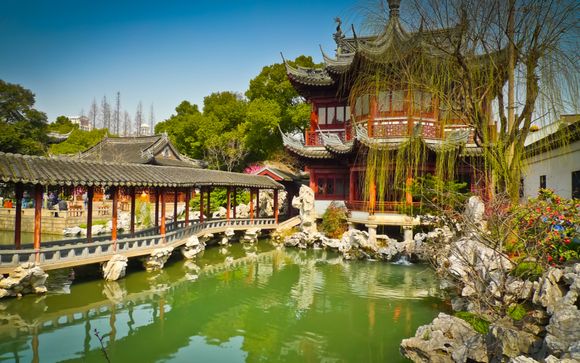Discovering Regional Cuisines In China Top 10 Suggestions
1. Tip: Know the eight Chinese culinary practices. Sichuan cuisine, Cantonese cuisine, Fujian cuisine, Hunan cuisine, Anhui cuisine, and Zhejiang cuisine are all important Chinese cuisines. Each has its distinctive flavors, techniques, and dishes.
Pro Tip: Plan your dining excursions based on your preferences.
Cons: It's difficult to keep track of all the subtleties in each dish.
2. Local specialties are accepted.
Try the regional specialties Try the regional specialties, such as Peking Duck (in Beijing), Xiaolongbao or Hot Pots in Chengdu.
Pro: Ensures an authentic and culturally rich dining experience.
Con: May hinder your exploration of different food options while in a particular area.
3. Take note of regional flavors
Tip: Sichuan cuisine is spicy and numbing, Cantonese food is light and fresh while Jiangsu dishes are delicate and sweet. Select dishes according to your preferences and tolerance for spice.
You can avoid ordering foods that don't match your tastes.
Cons: Certain flavors could require some experimentation and a cultivated taste.
4. Enjoy Street Food
There are unique street foods in each city, including Jianbing in Beijing (savory crepes) as well as Roujiamo in Xi'an (Chinese burgers). Take a look at some of the local dishes.
Pro: Street food provides an affordable and convenient opportunity to taste local cuisine. It also lets you get a a taste of the daily life of the locals.
Pro: Hygiene can be a concern sometimes; pick vendors with a high turnover.
5. Learn Basic Dining Etiquette
Tip - Understand Chinese eating habits, such as family sharing and avoiding the practice of placing chopsticks in rice vertically.
Pros: This indicates that you value the local culture while enriching your dining experience.
Con: It could take some time to adapt to the new style of conversation.
6. Ask for local recommendations
Locals are usually the best source for advice on restaurants and dishes. Do not be afraid to ask for assistance.
Cons: You will not be able find the hidden gems.
Cons: Communication can be difficult because of language barriers.
7. Be open to unfamiliar ingredients
Taste regional cuisines made with unusual ingredients such as bamboo shoots, tofu that smells, or lotus root. Take a curious approach to new food items.
Pro: Expands your palate and enhances your appreciation for Chinese cuisine.
Con: Certain foods may not be suitable for your taste or dietary restrictions.
8. Allowing Dietary Restriction
Learn Mandarin phrases which can be used to communicate preferences and allergies.
Pro: A safer dining experience, that is customized to meet your specific requirements.
Cons: Certain cuisines can be restricted in their options for people with certain dietary restrictions.
9. Pair Food and Drinks Regionally
Explore local drinks like tea from Fujian and baijiu north China.
Pro: Adds depth and compliments food.
Pros: Some people might not enjoy the strong flavor of baijiu.
10. Avoid Overordering
Tip: Chinese dishes are typically served family-style, so order conservatively and add more if required.
Pro: It prevents food waste, and allows you to try multiple meals.
Cons: It could be tempting to purchase too much because of the variety available.
Explore the regional cuisines of China and reap the benefits
Explore a range of tastes and techniques.
Cultural Insights: Increase your knowledge of local customs and identities of the region.
Affordability - Many local dishes are affordable.
Memorable experiences: Try iconic foods that originate from their origins. This can create long-lasting memories.
Cons of Exploring regional cuisines in China
Hygiene Issues: Some street food and small restaurants may not meet the international standards for cleanliness.
Language barriers. Menus or explanations in Mandarin may hinder the ability to place orders.
Certain people may have difficulty with certain tastes or textures.
Dietary Limitations: Strict vegetarians, vegans, or people with food allergies could be a challenge in certain areas.
You can tackle any challenge with these strategies, and remaining adventurous. See the best find travel ideas for this location for more recommendations including chinese festival cuisine, shopping in suzhou, splendid china tour.html, some gifts from china, shopping in xi an, eating in guilin, xishuangbanna, the color of dress in china, ancient football in china cuju in ancient china, wuxi a shining pearl of taihu lake and more.

Top 10 Tips For Visiting Temples At Different Seasons In China
1. Visit in Off-Season(Autumn/Winter).Tip. You should consider visiting famous Chinese temples in cooler weather (usually from November through February). There are less tourists, and it's cooler.
Pro: It is quieter and offers an ambiance that is more peaceful.
Cons: The temperature may be cooler, which can make the temple tour in outdoor locations uncomfortable.
2. Be Prepared for Extreme Weather
The temperatures can be quite different during different seasons. Summer is often humid and hot, while winters can often be freezing. Pack accordingly.
Pro: If you're prepared for any weather condition You'll be comfortable during your trip.
Cons: It is difficult to prepare to deal with extreme weather, particularly when you are traveling with a light load.
3. Visits in Spring and the Summertime to view Vibrant Flora
Tips: Make sure to visit temples during the spring and summer months for stunning gardens, blooming flowers, and lush scenery around temples.
Beautiful scenery enhances the experience of visiting the temple grounds.
Con Cons: Summers in America are often extremely hot and packed. This is especially the case on national holidays.
4. Think about Festivals, Special Events and Other Events
You should plan your trip around traditional festivals such as Chinese New Year or Mid-Autumn Festival. These days are a time for special rituals, ceremonies, and a chance to experience the temple's vibrant cultural life.
Pro: The temples are often lively and full of traditional activities, giving visitors an experience unlike any other.
Con: Temples tend to be extremely busy, and hotel prices can rise during the festival season.
5. Beware of the Peak Holiday Seasons
Avoid visiting during tourist-busy times like Chinese New Year, Golden Week, or the Golden Week of October, in which temples are often over-crowded.
Pros: Peaceful and tranquil visits with no crowds. Provides an uplifting experience.
Con: You might miss out on seeing some of the special festival events during peak times.
6. Check for Temple Closures in Winter.
Tips: Some temples might shut down or operate with restricted hours in winter months, especially if they are located in the remote areas or the northern regions. Be sure to check before you go.
Pro: Avoids unnecessary trips and allows you to organize your other activities in advance.
Con: A lot of temples are closed or reduced in hours for renovations. This can lead to frustration.
7. Early Morning Visits to the Beach During the summer
Tips: If you are visiting in the summer months, make sure to arrive early in the early morning to avoid the hot midday heat. Most temples are open in the morning as there are fewer people and there is less heat.
Pro: A cooler and more peaceful experience, without crowds.
Con: Requires an early rise-up time, which might not be a good fit for all.
8. Prepare for rain during the summer.
Tipp: Heavy rains are common in the summer, especially in the southern region of China. Bring an umbrella or rain gear if you are travelling during this period.
Pro: You can still admire the beauty of the temple when it rains.
Con: Rain can cause problems with outdoor activities, and can make temples slippery.
9. Fall is the best time to visit mountain temples
The fall foliage provides a stunning picture and is the ideal opportunity to explore mountains (e.g. Mount Wutai).
Pro: Cooler temperatures are great for exploring nature and hiking.
Con: The most popular mountains temples are still popular with tourists, especially on weekends or during holiday seasons.
10. Take into consideration the Lunar Calendar when planning specific activities
Tip: A large number of temples in China adhere to the lunar calendar, and some rituals or events are tied to certain dates of the lunar calendar. To attend events like Buddha's Birthday and the Lantern Festival in China, you must check out the lunar calendar.
Pro: Unique cultural experience and deeper insight into local spiritual practices.
Cons: The lunar calendar may force you to plan your trip with more care and may not match up with events taking place at the moment.
Benefits of a Seasonal Trip to Chinese Temples
Fewer crowds: Visits during the off-season are less busy and more reflective.
Cultural Events: Festivals offer greater understanding of local religions and cultures.
Beautiful Scenic Beauty: A visit in the fall or spring can be awe-inspiring and stunning. There are also vibrant gardens that surround temples.
Cooler Weather: Autumn and winter offer milder temperatures for temple exploration.
Pros and cons of visiting Chinese temples during the Chinese festival
Unpredictable Weather - Winter may be chilly, and summer can be too hot. Both weather conditions could affect your ease of living.
Temple Closures: Some temples close in extreme weather or when they have restricted hours.
Crowded During Festivals: Popular festivals and holidays are often accompanied by large crowds, which makes it difficult to experience the temple's peaceful atmosphere.
Special Events: Certain celebrations or events during the season may not occur when you are visiting outside of the right time frame.
By choosing the right season for your trip and plan accordingly, you'll be able to guarantee a more pleasant and meaningful time at China's famous temples. Knowing the seasons of the temples will enable you to make the most your visit, whether you want peaceful solitude or cultural festivals. See the most popular view highlights of this attraction for website recommendations including binhai aircraft copyright theme park in tianjin, blue dragon temple, the top 4 movies about kung fu and chinese culture, tips for identifying copyright, eating in dunhuang, a wonderful landscape painting lijiang river, shopping in kashgar, a wonderful landscape painting lijiang river, some gifts from china, wang zhaojun one of the four beauties in ancient china and more.

Comments on “20 New Reasons For Deciding On China Tour Sites”